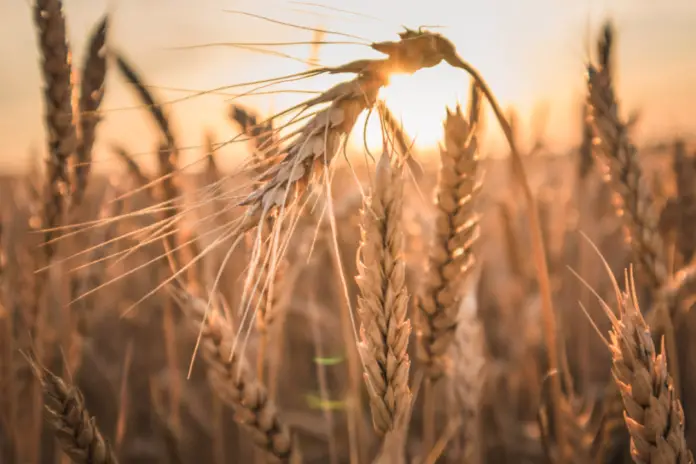Abdul Rauf Shakoori & Dr. Ikramul Haq
Pakistan’s economic problems are widening. The new government is trying to save the country from default. The government’s recent decision to raise energy prices is being taken as a step to meet International Monetary Fund’s (IMF) conditions agreed to by the coalition government of Pakistan Tehreek-e-Insaf (PTI) for availing the Extended Fund Facility (EFF) of US$ 6 billion. Neither did talks with IMF succeed in Doha nor has Pakistan managed to get economic relief from Saudi Arabia so far. However, the Federal Finance Minister, Miftah Ismail, shared good news in his tweet regarding refinancing of RMB 15 billion deposited by Chinese banks (about US$ 2.3 billion) – their inflow is expected shortly after some routine approvals from both sides. Miftah Ismail is hopeful that refinancing of RMB 15 billion would shore up foreign exchange reserves. Yet, the risk of default is still there. Pakistan needs immediate support to meet the fiscal gaps. In his speech to the nation, Prime Minister Shehbaz Sharif said that budget deficit for the year might exceed Rs. 5500 billion. To make matters worse, Federal Board of Revenue (FBR) is likely to miss the revised target of Rs. 6.1 trillion for the current fiscal year.
Another factor which is fast draining our foreign exchange reserve is piling up of current account deficit (CAD). Though the current government imposed ban on import of luxury items, yet this temporary measure might not be sufficient to build foreign reserve – though it would certainly affect GDP negatively. Pakistan is an import-based country and whenever economy grows beyond a certain percentage, CAD grows as well. This was witnessed in the last tenure (2013-18) of Pakistan Muslim League (Nawaz) – PML-N. CAD was also an issue during PML-N regime, though it mainly stemmed from heavy import of plant and machinery, especially under China Pakistan Economic Corridor (CPEC) projects. Landmark initiatives, mainly under CPEC, helped in development of infrastructure, new power plants and diversified industries. For example, electricity related projects helped to overcome the chronic issue of energy shortfall. It positively impacted industrial growth in Pakistan and the same was reflected in Large Scale Manufacturing (LSM) growth number and most importantly in GDP growth.
The infrastructure projects connected all provinces, main cities and industrial zones with modern highways. So these development initiatives on one hand helped in GDP growth and on the other doubled revenue collection. To meet the fiscal deficit, Pakistan needs to introduce structural reforms, so that reliance on imports can be curtailed. Realising this need, PML-N in its previous tenure introduced Automobile Policy – the main object was to attract more investment in Pakistan and encourage foreign manufacturers to set-up production facilities in Pakistan. This benefitted in multiple ways like creating more employment opportunities, reducing import bills related to cars, and giving public more options at a reasonable price. Continued dividends of Automobile Policy saw new locally-assembled vehicles everywhere.
The key component of import bill is crude oil. During its tenure, PML-N took an initiative where it set-up first-ever LNG terminals and plants in Pakistan. This helped to reduce reliance on expensive crude oil for its energy requirements. Returns of this initiative should continue benefitting Pakistan in the future but the economic imprudence and incompetence of PTI government, led by Imran Khan, proved to be an epitome of mismanagement that failed to deliver on any front.
It is tragic that Pakistan, being an agrarian economy, is dependent on imported agricultural produce, like wheat and sugar. Before 2018, Pakistan was growing wheat and producing sugar at home. However, during the last four years (August 2018 to April 2022) Pakistan started importing these items as well, completely ignoring its agricultural potential in meeting all its fiscal needs and help save foreign exchange. Apart from wheat, sugar, cotton or vegetables, Pakistan’s consumption has increased from 5.31 kg in 1973-74 to 20 kg in 2018 and expected to rise further to 22.2 kg by 2028 as compared to world average which is estimated at 18.2 kg per person.
It is reported that 85% of Pakistan’s edible oil demand is met through imports. As per Pakistan Agricultural Capacity Enhancement Programme (PACE), in 2019-20 the total availability of edible oil was 4.316 million tonnes, which included domestic oil production of 0.554 million tonnes (constituting 13% of the requirement) while 3.765 million tonnes (i.e. 87% of the requirement) was met through import of edible oil and oilseeds. Currently, edible oil imports are among the top 5 to 7 ranked items falling in the bracket of petroleum products and machinery. The high volume of edible oil import is badly affecting foreign exchange reserves, especially when import quantity and international market prices have been constantly rising. Rapeseed and Mustard (RS&M) are one of the most important edible oilseed crops grown in Pakistan. Despite increasing demand of edible oil at local level, the RS&M productivity remains much lower than global average. Mainly because of reduction in area, during 2001-16 the production of RS&M declined at an average rate of 0.8% per annum.
Our production level constraints include lack of availability for affordable high-yielding inputs. The government’s resource allocation for minimum support price, incentivising farmers, improved research and development (R&D) can help generate better results. Due to lack of availability of formal and modern supply chain elements, post-harvest losses are also an important reason for low yield. Government and non-government organisations (NGOs) must train farmers and handlers to improve post-harvest best practices so that such losses can be minimised. Also, there is need for introduction of advanced threshing and transportation besides ensuring access to affordable equipment for timely harvesting.
At extraction and generation level, due to lack of technological advancement, a significant share of the total production of Rapeseed & Mustard (RS&M) is subjected to traditional techniques of oil expelling i.e. kohloos yielding low oil output. We must invest resources to shift to modern and technologically advanced mechanical expelling which can surely increase the quality yield and profitability of the value chain stakeholders.
There is need to focus on small farmers, who have difficulty in accessing financial sector credit schemes and have to rely on informal and expensive credit lines. With the intervention of government, availability of formal credits to farmers can help in generating promising yields. A well-worked out subsidy programme for small farmers can be effective in behavioral change of cultivators, who can shift their focus to these crops. Moreover, coordination and partnerships with other countries can be of immense help in learning and adopting new techniques and making the whole supply chain effective. Modern intercropping technology can help to grow soybean without compromising on the cultivation area of existing crops like maize, sugarcane, and corn. For countries like Pakistan, intercropping can be very beneficial especially considering the temperature and environmental conditions.
_______________________________________________________________________
Abdul Rauf Shakoori is a corporate lawyer based in the USA and an expert in ‘White Collar Crimes and Sanctions Compliance’. Dr. Ikramul Haq, Advocate Supreme Court, is Adjunct Faculty at Lahore University of Management Sciences (LUMS), member Advisory Board and Visiting Senior Fellow of Pakistan Institute of Development Economics (PIDE). They have recently coauthored a book, Pakistan Tackling FATF: Challenges and Solutions, with Huzaima Bukhari.







